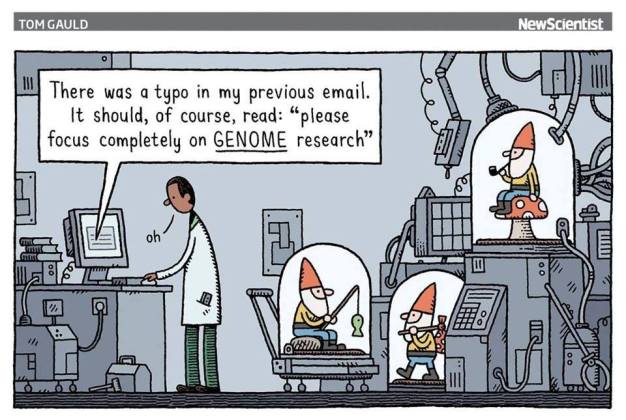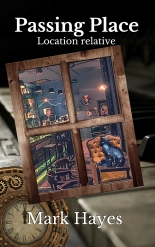It may seem obvious, but in case it’s not, or even if it is…
1/ Proofreading your novel.
There is nothing, and I do mean nothing, as important as having a good proofreader or three. No matter how many times you try to proofread your own work, you will miss things. Lots of things. Believe me, I know this to my cost. It does not help that I am dyslexic, but that is not an excuse or even the main reason I miss the odd typo or three. Being word blind, which is another way to describe dyslexia, I am just a little more likely to miss typos than most. Every writer is too close to their own work and can fall into the trap of thinking their manuscript is perfect. From silly little errors to frankly annoying big ones. Never publish until your manuscript has been proofread several times.
For example, I have read more than one indie novel where a character’s name is spelt differently in chapter six than it was in chapter one. The first published version of my first novel Cider Lane managed to use the word ‘cloths‘ for ‘clothes‘ among several other oddities that crept past me. I had it fully proofread and re-edited several months after the original release when my readers had become my proofers. Your readers should never feel the need to email you and point out a bunch of typos, and they will believe me.

2/ Grammarly
One of the best investments any writer can make. Yes, I know ‘Word’ and every other word processor has their own spell checker built in. Yes, I know that modern word processing software also has grammar checkers and other editing tools. And yes, I know there are writers software suites out there like ‘Scrivener’ that has lots of bells and whistles to do the same sort of thing that ‘Grammarly‘ does, as well as all the other toys it gives you to work with. But none of them is a simple straightforward and as easily customisable as ‘Grammarly’. Whether you run it live as you write, or turn it on afterwards to proof a document it will catch far more than just typos, and bad grammatical errors. It is a great first step before you hand the manuscript over to a proofreader. I really can not recommend it enough, and as I am dyslexic, as I may have mentioned, I really make the software work for its supper…
3/ Proofreading other stuff
No one is going to read a novel written by someone who’s promotional work has typos and grammatical errors in it. The same is true for a writers blog posts (the irony here is implied), Facebook posts, even tweets. They just won’t, it’s as simple as that. No matter how good your novel, no matter how much work you have put into it, no matter how carefully you have proofed it, no matter how shiny the cover, or how many good reviews you get. If your ‘come buy me’ click bait teaser has a typo, people will spot it, and deride you for it, and will not be interested in your novel at all. Because no one wants to read a badly edited, unproofed novel, and that’s the expectation you have created. See the lovely little twitter teaser ad below.

Did you spot it? I drew your attention to it having a typo so you probably should have done, but even if you haven’t, believe me, plenty did. ‘Hers‘ does not, never has and never should, have an apostrophe in it. It is elementary grammar, yet it slipped past me entirely when I made the picture because the text was taken from an early draft. In the final draft, it reads ‘And every face was Carrie’s‘ which does have an apostrophe. But I built the teaser and several others while I was waiting for the proofreader to get back to me on the final draft. Then forgot about it until I used it a few months later without thinking. The several people who took delight in pointing it out at the time on Facebook were lost to me as potential readers before I even started… And even the new polished version of the same teaser below will not hook them back, once they are gone they are gone for good because your mistakes will stick in their minds…

4/ Proofreading everything…
Do you sense a theme yet?
You’re a writer, writers have to write right, or writers have to write correctly if you prefer grammatical exactitude over alliteration. This is a thread that will follow you throughout your professional life as a writer, and even if you have a full-time job, and writing is a hobby, you should want, and definitely need, to treat it as a profession. You need to make sure everything you write is written well, grammatical errors are avoided, typos stamped upon and avoided like the plague that they are. Because every facebook post you put out there as Joey McBloggs the Author of ‘Down on the Farm’ needs to be correct. If a potential reader keeps seeing posts from you on faceache that are full of typos, or just grammatical nonsense, then they are not going to take a chance on your novel. They may point out your errors, but that’s about as far as it goes to being interested in your writing, no matter how interesting what you have to say happens to be. I know this only too well because when I am tired, or just posting off a flippant facebook message, I am more likely to miss something due to my dyslexia than most people.
I combat this with Grammarly, which runs in the background on everything and every bit of hardware and software I use bar my phone. But it doesn’t really matter how you combat the typo grammar demons, just as long as you do. Find a way or a piece of software that works for you. Just avoid the pitfalls of not reading what you have written till after you hit send, it is far too easily done no matter who you are.
5/ Speed is not everything (or reasons to proofread)
Don’t rush to publish, no matter how tempting it is to just get your work out there. It pays to wait, it pays to get it right. What’s more important publish your book a few days after you type ‘The End‘ or publishing it the right way, six months and several proofreaders later? It’s the latter, trust me on this if nothing else.
It is tempting, oh so tempting, to publish it as soon as you think it’s ready. But do you really want to pull it off the market three months later and reproof it because you have been told about every grammatical error and typo people have found?
I, blatantly, made this mistake when I published my first novel. There were reasons I did so, personal reasons that while I will touch on them, I am not going to go into any depth on here and now. Suffice to say I was in a bad place at the time, bordering on depression, at the wrong end of a broken relationship, and out of work for the first and only time in my adult life. Having written my first novel, getting it ‘out there’ seemed like the way to lift myself out of the hole I could feel myself sliding into. It was the happiest thing in my life at the time in all fairness, so I rushed into it. While I do not regret doing so, I wish I had held off and had it proofread properly. When I did, several months later, I released it again, a much more polished novel. But I have no idea how many people read an excerpt on Amazon before I did so, and found a novel fully of typos and walks away, but I know people did because more than one has told me so in the years since. I have got a few of these lost readers back, through hard work, but I doubt I have got them all back or ever will…
6/ Finding good proofreaders
My advice is to find a friend or two who is honest enough to tell when you have written garbage. Fastidious enough to take their sweet time going through your work, and will do so with a smile. I have a couple of good friends who proofread for me these days, (after I run manuscripts through Grammarly). But friends who can proofread to a good standard are hard to find, and ones willing to do it for you are harder still. There are other options. However, the internet is full of people offering to proofread for you ‘for a small fee’. But bear this in mind…
If someone is offering to proofread for $5 per 10,000 words, you’re not going to get their best work. At most, they will skim through, or run it through software of some form. Even $5 per 1000 words is cheap to the point of being given away. Buyer beware is all I am saying.
If you’re going to get your work proofed professionally by a pay service expect a minimum of $10 per 1000 words or to pay on an hourly rate that will work out close to the same. Even then it is cheap, and you want someone who will do the best job possible for your work. The best advice is to talk to the community and ask for people to recommend a proofreading service. (Yes, I know it always seems to come back to engaging with the community, but other authors really are the best resource available to you.)
I don’t use a professional service because I have very professional friends, who are also fellow writers doing it for me. For which I am ever thankful…
adios for now
Mark
Links to my own social media, by all means, connect with me on them.
Other posts on writing and self-publishing are collected here:
https://markhayesblog.com/publishing-and-writing/
















Enjoyed reading your post. Especially point 5.
LikeLiked by 1 person